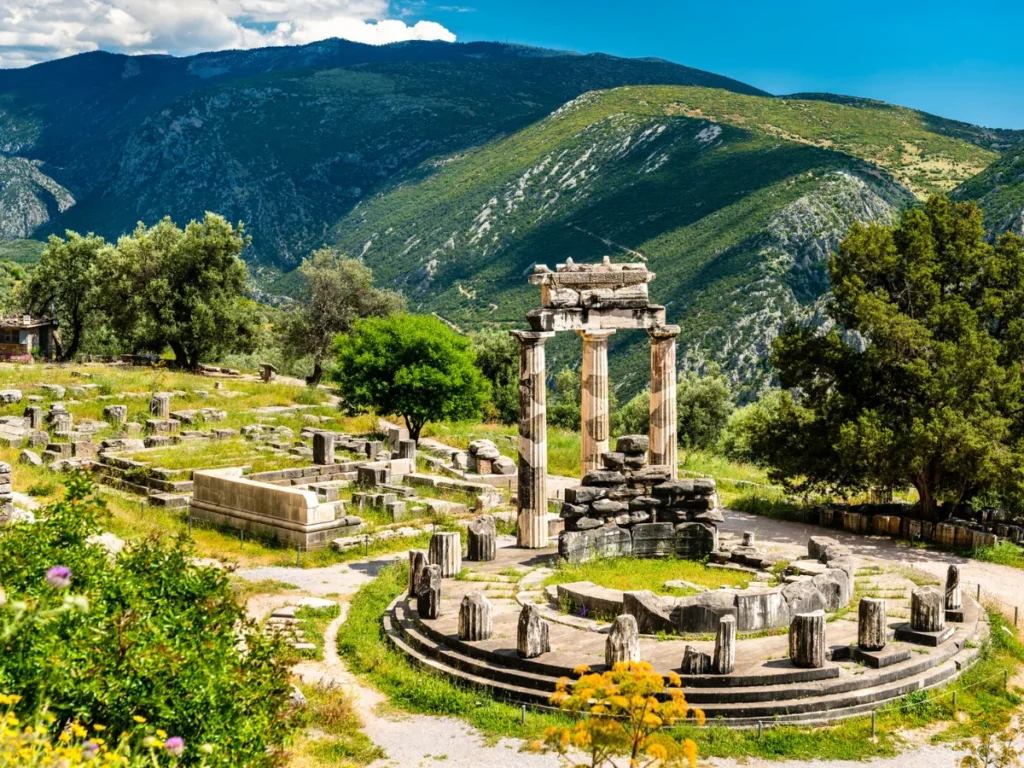Poseidon was the mighty God of the seas
Poseidon was the mighty God of the seas. His significance extended to religious devotion, with the Temple of Poseidon at Cape Sounion serving as a testament to his maritime influence. As a dynamic deity, his temperament mirrored the capricious nature of the oceans he ruled, leaving an enduring legacy intertwined with Greek culture and the forces of the natural world.

Poseidon, the mighty God of the seas
Poseidon, the formidable Greek god of the seas, commanded the vast ocean realms and stood as a prominent figure in ancient Greek mythology. His character and dominion over the waters were central to the beliefs and culture of ancient Greece.
Birth and Lineage
Poseidon was born as one of the six children of Cronus and Rhea, part of the Olympian pantheon that ruled the heavens. His siblings included Zeus, Hades, Hera, Demeter, and Hestia. These gods played crucial roles in shaping the cosmos, and Poseidon’s realm was the oceans and waterways of the Earth.
Personification of the Sea
Poseidon’s power extended far and wide, as he controlled both the calm serenity of the sea and its tempestuous fury. Sailors and seafarers looked to him for protection during their journeys. They offered prayers and sacrifices to appease his moods. The sea, with its unpredictable nature, reflected Poseidon’s complex personality – at times benevolent, at others wrathful.
Symbolism and Iconography
Poseidon is often depicted wielding a trident, a three-pronged spear, which symbolized his dominion over the waters. Dolphins and horses were sacred to him, showcasing his connection to the sea and his ability to cause or calm storms. Temples and altars dedicated to Poseidon could be found across Greece, underlining his significance in the daily lives of ancient Greeks.
Legends and Myths
Throughout Greek mythology, Poseidon featured prominently in various stories. One of the most famous myths associated with him is his competition with Athena for the patronage of Athens. Poseidon struck the Acropolis with his trident, creating a spring of saltwater, while Athena gifted the city an olive tree. The people of Athens chose Athena’s gift, and thus, she became their patron goddess.
Another notable myth was Poseidon’s role in the creation of the horse. It is said that he struck the ground with his trident, and from the earth, the first horse emerged.
Legacy and Modern Influence
The legacy of Poseidon endures to this day, as his character continues to inspire literature, art, and popular culture. His portrayal in various forms of media highlights the enduring fascination with the powerful, enigmatic god of the seas.
In conclusion, Poseidon’s influence in ancient Greece was profound, as he represented the vast and often unpredictable power of the oceans. His character remains an iconic figure in the rich tapestry of Greek mythology, a testament to the enduring allure of this mighty god.
